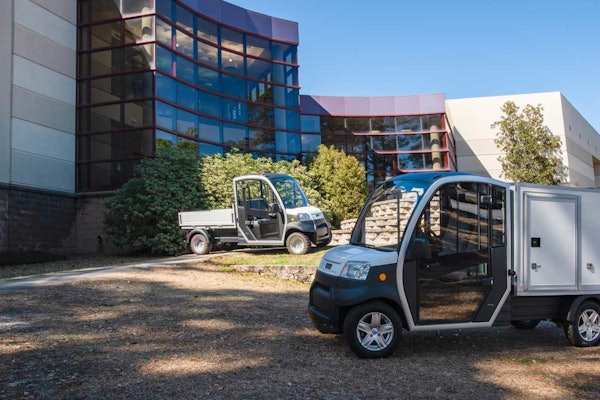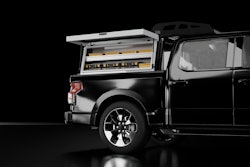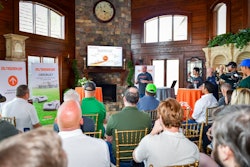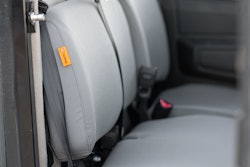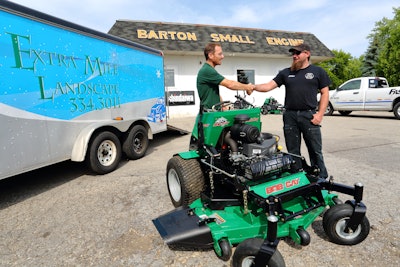 A good dealer should feel like a strong business partner you can depend on.
A good dealer should feel like a strong business partner you can depend on.Photo: Bob-Cat
Want to download the entire Mower Matchup series, including makes, models and details on dozens of mowers from the editors at TLC?
There are many aspects a landscaper has to consider when picking a mower brand, but one element that can be overlooked is the importance of dealer relationships.
Fostering a strong relationship with the equipment vendor you work with can reap many benefits.
What matters most
Equipment and service come to the forefront when green experts consider what creates a good landscaper-dealer relationship.
“I would say the number one thing would be availability or selection of equipment,” says Brian Fullerton, owner of Brian’s Lawn Maintenance based in Detroit, Michigan. “Let’s keep it real. If they can’t carry or don’t want to carry what I need, that’s not helpful.”
Aside from being able to provide the machines you want to buy, having quality customer service is key.
“I think if they can facilitate my service needs, that’s one of the more paramount things of a good dealer relationship,” Fullerton says. “If something breaks down, I’ve got to get it fixed and get back out there. Downtime is what kills our industry.”
A good dealer operates with integrity and has an extensive knowledge of equipment and parts, says manufacturer Toro.
“Toro dealers hire employees that know and use power equipment,” says Chris Vogtman, senior marketing manager at Toro. “They can answer questions and make sure that their customers are buying the product that fits their needs; not more and not less.”
“It’s important for a customer to find a dealer that they can grow their business with,” says Richard Miller, corporate sales manager, TriGreen Equipment, a John Deere dealer. “Not every customer starts big, so it’s imperative that they find a dealer that is going to enhance the longevity of their business and help it expand. Customers should find a dealer that thoroughly understands their business goals and objectives. Often times, an interview process will take place to ensure that both parties are on the same page.”
For Doug Howard, co-owner of Howard Brothers and Hardware, an Exmark dealer, it all comes down to trust.
What to expect out of a dealer relationship
Having realistic expectations can help keep both you and your dealer on the same page. It can also prevent you from asking for too much and then being disappointed.
“A landscaper should expect that a dealer has a listening ear and is there to help them with their business,” says Ron Scheffler, senior product manager for Bob-Cat. “A landscaper can also expect that a dealer will give them the best service they can and a quick response time, within reason.”
One aspect that varies greatly, depending on the dealer and the mower brand, is whether negotiating the price is a possibility. Fullerton says he doesn’t haggle with his prices.
“At the end of the day if they’re not making profit, they’re not going to be in business to support me,” he says. “I’m happy as long as the prices are fair market value. I’m not here to nickel and dime them.”
Miller says that John Deere has a loyalty program in place for those who do like to negotiate the price.
“As customers begin to grow, dealers are willing to pass along discounts when possible,” Miller says. “Some dealers are also willing to work with a customer depending on their financial situation.”
Scheffler says that Bob-Cat’s dealers are independent and set their own prices, but they are open to negotiating prices with landscapers based on the model year of the product and the time of the season.
“There are multiple financing options available to the landscapers, and dealers are aware of these and can help the landscaper pick what options are best for them,” Scheffler says.
Dealers also strive to be aware of pain points that landscapers are facing, such as the labor shortage.
“With us, we let them know that we’re in it with them together, we know their pain,” Howard says. “Like right now, we know they have labor pains, so we try to help them with training.”
Howard says they’ll do equipment training rodeos at the beginning of the season and go over the proper use of walk-behinds and zero-turns, as well as handheld equipment and proper maintenance.
“A lot of times, it’s as simple as how to change an edger blade and how to wind a weed eater head,” Howard says. “We try to realize the pain that our customers are going through, and we’re always trying to find ways for them to cut grass more efficiently. We like to be a business partner with them.”
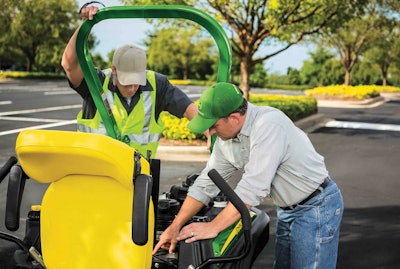 John Deere dealerships offer the NeverStop loaner program where loaners are provided at no charge while machines under warranty are being repaired. Photo: John Deere
John Deere dealerships offer the NeverStop loaner program where loaners are provided at no charge while machines under warranty are being repaired. Photo: John DeereThe ability to provide loaners is another feature that differs among dealers but can greatly boost your efficiency.
“The Gravely Assurance Program ensures that when a landscaper has a unit down, their dealer will have a loaner available for them,” says Matt Medden, vice president of marketing for AriensCo. “It’s something that we take really seriously at Gravely because we know that any downtime for contractors results in lost revenue.”
John Deere dealerships offer the NeverStop loaner program where loaners are provided at no charge while machines under warranty are being repaired.
“In addition to service loaners, we offer sales loaners that customers are able to demo,” Miller says. “To maintain the integrity of the loaner program, the dealer and the customer have to be on the same page. It’s important for dealers to know that they can trust customers when providing loaner equipment.”
As for how far you should be willing to drive to a dealer you like, it all depends on what they are providing and how far away it is.
Miller suggests anything within 60 to 90 minutes is reasonable, but Fullerton limits it to 30 minutes.
“I’d say if you don’t like a dealer then one of two things has to happen,” Fullerton says. “One, you’ve got to be comfortable with driving 30 to 60 miles to find your next nearest dealer, or number two, you need to make amends with that dealer because it would be asinine to run your company for the next 30 or 40 years and drive twice as far as you need to just because you got in a shouting match one time.”
“Landscapers need to consider their business needs when deciding on a dealer, and time and efficiency are certainly some aspects to consider,” Scheffler says. “When picking a dealer that is farther away from their business radius, there should be a solid business reason for that decision, such as outstanding customer service, etc.”
Vogtman says that spending a little bit longer on the road can be worth it if it means working with a trusted mower brand and dealer.
“Landscapers should expect somebody who is willing to back them up,” Miller says. “Whether it’s requesting a piece of loaner equipment or anything else, you need someone who is going to have your back.”
Benefits of a strong relationship
Having a strong dealer relationship benefits both parties and provides your landscaping company with support when you need it most.
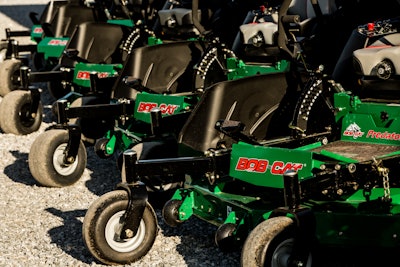 The right dealer for you will meet your equipment needs and offer quality customer service.
The right dealer for you will meet your equipment needs and offer quality customer service.Photo: Bob-Cat
“The dealership is essentially an extension of the landscape contractor’s team and is there to help when things aren’t going 100 percent to plan,” says Vogtman
In some cases when a positive relationship is formed with a dealer, they can even be willing to go above and beyond when it comes to customer service.
“If something breaks down, I know there is an 85 percent chance that I’ll be in and out within an hour at best,” Fullerton says. “I’ll have a loaner or realistic timeline as to when my repairs will be done. Versus having to work with dealer I don’t have a relationship with, I might just be a number to them or just a warranty claim through a big box store. The ability to have peace of mind knowing that I have someone supporting me helps support my business; I think that’s huge.”
Howard says that a strong dealer relationship is like being married to that customer.
“We want his parts business,” Howard says. “We want his service business, and whenever they invest all of their eggs in our basket, we, in turn, are invested in them too, as far as getting their repairs back to them as quickly and timely as we can, giving them the best competitive price on everything. It is definitely advantageous for them to put their eggs in one basket if they have that strong relationship with a dealership.”
Miller adds that a good dealer should feel like a strong business partner you can depend on.
“Just like a strong banker, a strong dealer can help you stay in business,” Miller says. “Having a good dealer adds credibility to your company and allows you to enter big jobs knowing that you’re prepared to be successful.”
How to make a relationship stronger
If you currently don’t have a dealer relationship or would like to strengthen the one you have, here are some tips on how to improve this connection.
One of the easiest ways to enhance your bond with your dealer is to support them by giving them your business.
“It’s got to be reciprocal,” Fullerton says. “I don’t expect the dealer to support me if I’m not buying from them.”
Another major element is improving communication and transparency.
“At AriensCo, we follow our five core values and encourage those doing business with us to do the same,” Medden says. “We encourage dealers to be honest, be fair, keep their commitments, respect the individual and encourage intellectual curiosity. We believe that following these values as a guide will result in strong and lasting relationships, thus increasing business and a loyal customer base.”
Both Fullerton and Miller say that it is key to be honest with your dealers in order for them to assist you as much as possible. If you don’t communicate where you’re at with your workload, a dealer can’t help you out to the best of their ability.
“There’s many a time your dealer will bump you to the front because maybe the other 17 people in line have spares or backups or extras or it’s not as urgent, so they’ll work to get you in and out if you need it sooner,” Fullerton says. “It’s not favoritism. It’s just working all together. I’d totally respect that if somebody else needed to bump in front of me.”
However, you also can’t blow every situation out of proportion and pretend it is an urgent need when it is not.
“For their part of forging a relationship, a landscaper needs to remember that a dealer has many customers that they need to serve and take care of,” Scheffler says. “While downtime and maintenance happen, a landscaper cannot necessarily make everything an emergency when service is needed.”
Howard stresses the importance of landscapers paying their bills in a timely manner, as dealerships need a steady cash flow as well to continue to buy new products.
“Some of them have a reputation of not paying their bills and we don’t respond that quick to those guys because we have to pay for that product as soon as it leaves our floor,” Howard says. “We know that if they’re going to drag their feet about getting their paperwork done to reimburse us for that equipment, we’re going to be slow about our response too. It’s about working together.”
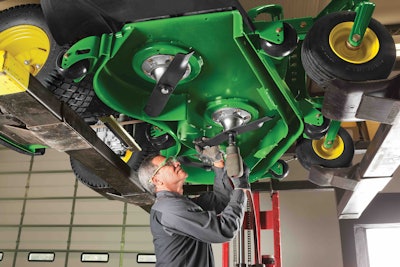 Sometimes when your mower is in the shop, certain dealers can offer loaners to boost your company’s efficiency. Photo: John Deere
Sometimes when your mower is in the shop, certain dealers can offer loaners to boost your company’s efficiency. Photo: John DeereFor those landscapers worried that hiring a mechanic to handle the servicing of their equipment will harm or weaken their relationship with dealers, the majority say this is not really a concern.
“I think that every dealer would love to have 100 percent of the parts and service business, but in today’s society, most dealers are quite realistic and understanding,” Miller says. “As a customer, it’s still extremely important to maintain a good relationship with a dealer because there will be some things that you may not be able to fix. It’s also very important to value your dealer’s expertise.”
Fullerton agrees that there’s nothing wrong with handling your own maintenance or having an in-house mechanic because you’ll still need your dealer to order the parts you need.
Howard says that when landscapers hire their own mechanics, it is a blessing for them, and they even make a point to have the manufacturers come in and train these mechanics for the landscaping companies free of charge.
“It’s a win-win,” Howard says. “They’re getting the parts from me, and they’re paying their technician to work on their stuff because since literally 90 percent of our business is landscape contractors, we cannot possibly do all the repairs of all the equipment we sell. We could not hire enough mechanics to do the work that we would get in the spring time because it’s just too much volume.”
“Simply put, dealers are successful when the landscape contractor is successful,” Vogtman says. “Dealerships are available to assist when needed but it’s also widely understood in the industry that landscape contractors are an incredibly resourceful group, and by and large are completely capable of performing routine maintenance on their machines. Toro dealers remain committed to forging strong connections to their landscape contractor customers and are available to jump in and help when needed.”
Medden says handling your own maintenance does change the relationship with the dealer, but it’s still important to have a strong connection with them.
“Even if contractors are doing basic maintenance on their own, chances are they will still run into a situation where they need more help or don’t have the right part,” he says. “In those times, it’s very important to maintain a good relationship your dealer.”
EDITOR’S NOTE: This is one of the articles found in Mower Matchup. Mower Matchup was created to delve into the pros and cons of various mower features and provide a comprehensive look at popular mower manufacture specs. Click here to download the full Mower Matchup series.




